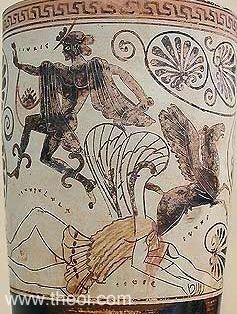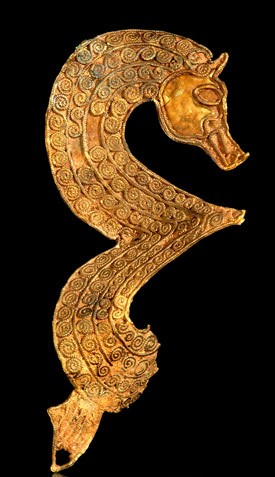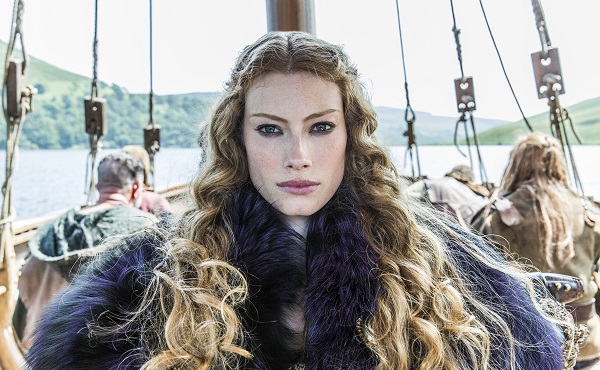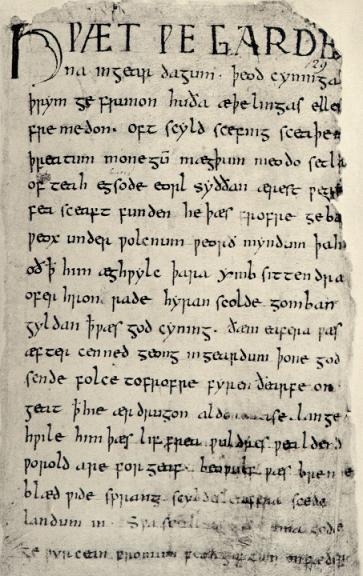
Odin Rides to Hel - W.G Collingwood (1908)
I've loved horses my whole life, and from a young age I was writing pretty class poems about them ("Big horse, little pony, fast trot, slow walk" - literary genius) and they are pretty much the inspiration for 99% of things I draw/paint, so why has it taken me so long to write a post about them?! They are wonderful, beautiful animals, they are extremely powerful, and most of them are extremely willing, they have fluffy ears and the softest loveliest noses, and they are afraid of silly things (gutters, leaves, things that weren't there yesterday), and they can mess you up if they want, and they can be complete assholes sometimes, and they make your life so much better. Respect, yo.
So, did the Ancient Everybodies love and respect horses as much as many people do today (I stress many, because there's too many who don't)? Today, there are still stories of horses from the ancient world and ancient mythologies, which seem to show that back in the day, horses mattered. Well, of course they did - they were handy for transport and war and keeping the lawn trimmed. But besides that, I want to look at some more famous horses.
Let's start with Bucephalus, who was the horse of Alexander the Great. Plutarch tells the story of how Philonicus the Thessalian brought the horse to Alexander's father Philip, but when they went to catch him, they found that he was batshit crazy and decided he was useless. Alexander, 13 at the time, noticed that he was a fine horse and said he would tame Bucephalus, to which everyone sniggered and muttered "lolz, ya rite", and if he failed, he would pay the full price for the horse:
Alexander ran to the horse, and laying hold on the bridle, turned him to the sun; for he had observed, it seems, that the shadow which fell before the horse, and continually moved as he moved, greatly disturbed him. While his fierceness and fury abated, he kept speaking to him softly and stroking him; after which he gently let fall his mantle, leaped lightly upon his back, and got his seat very safe. Then, without pulling the reins too hard, or using either whip or spur, he set him a-going (Lanhornes' translation)Alexander comes to us as some sort of Ancient horse whisperer of sorts. Seeing his son's taming of Bucephalus, Philip exclaims that Macedonia is too little for his son. And he was right, wasn't he - by the time he was 30 he had one of the biggest empires in the world.
Bucephalus is said to have been a huge, jet black horse, with a white star on his forhead, no doubt an inspiration to Anna Sewell when she wrote Black Beauty, and an obvious influence on Walter Farley's The Black Stallion, which tells of a boy, Alec, taming a black stallion (durr) on an island.
Bucephalus apparently died at the age of 30, which is a ripe old age even for horses these days, perhaps at battle. After the death of his beloved horse, Alexander founded the city Bucephala, in modern day Pakistan, to keep his memory alive. Unfortunately, it didn't remain as Bucephala, so so much for that.

One of my favourite people in history to read about is the Roman emperor Caligula, because he was pretty crazy (a bad crazy), but he was also crazy about his horse, Incitatus.... also perhaps a bad crazy. Caligula was so enamoured by his grey horse that he apparently had a stable made out of marble, a manger made of ivory, and a headcollar made from precious stones. Dio Cassius claimed that the horse had its own servants and was fed oats mixed with gold flakes. That's why I feel like Incitatus every time I drink goldshlager. It is also rumoured that Caligula planned to make Incitatus consul. However, it is disputed whether this was down to Caligula's insanity or his way of making a satire of the men in government. There is all sort of stories concerning Incitatus, some saying he was a racehorse from Spain, some saying he had his own house and gardens and that he held dinners for dignitaries. It is debated whether his treatment of his horse is accurate, or whether those who wrote about his life were exaggerating his folly in order with Clau-Clau-Claudius' (who succeeded him, also his uncle) regime. To which I would recommend reading I, Claudius by Robert Graves - a great book full of debauchery and so many characters that its hard to keep up.

I'll finish off with two mythological horses, the first of which is Pegasus - we couldn't leave him out! Pegasus's birth is a bit of a strange one, firstly because he is the son of Medusa (out of her union (possibly rape) with Poseidon), and was born at the same time as his brother Chrysaor. Even stranger again is that the two brothers were born when Perseus beheaded Medusa, and they somehow sprung out of her neck. Here is a depiction of it on an ancient Greek thing (although it leaves out Chrysaor):

Pegasus is usually depicted as a pure white stallion (the horse world is still debating whether white horses actually exist, but well give him this, seen as he's mythological to begin with), his most important feature being his wings and his ability to fly. He was captured by Bellerophon with the help of Athena and Poseidon, and flew the hero to defeat the Chimera. Bellerophon is said to have fallen off Pegasus when Zeus sent a fly to sting him (the horse) - it hurts bad enough falling off a horse that can't fly, so I can only imagine. Pegasus then flew to Olympus where he was used as a pack horse to carry Zeus' thunderbolts. Noble ending, eh? Because of his loyalty, he was honoured with the legacy of becoming a constellation.

Last, but not least, is the surprisingly not so famous Sleipnir, horse of Odin. Sleipnir has an even weirder birth and lineage than Pegasus, leading to many humorous Mother's Day Cards. Anyway, how did Sleipnir come about - a builder offered the gods to build a fortification to keep out invaders in exchange for Freyja, the sun, and the moon. The Gods agree, but only if the builder can build it within three seasons, with the help of no other men. He requests help from his horse Svaðilfari, and this is allowed, under the persuasion of Loki. The stallion turns out to be extremely strong and the Gods begin to panic, as the builder made fast progress. Three days before he is to finish the work, the gods gather around and point the finger at Loki and threaten him with death if he cannot find a way out of this. Basically the Gods are awful unfair cheaters.
So...this is where it gets weird - Loki decides to turn into a mare, and seductively neighs to Svaðilfari, who being a stallion, cannot control himself and runs off with the mare and they frolic about for the night, causing the builder to fail in his challenge. A few months later, Loki gives birth to a lovely grey foal with eight legs (the kind of incident that would result in talks about genetic mutation and pollution and weird worship in modern times), described as the best horse among the gods and men.

Sleipnir is described numerous times as visiting Hel, with Odin and with Hermóðr. In the Prose Edda, Odin rides Sleipnir to Jötunheimr, land of the giants, where he encounters Hrungnir, who despite admitting that Sleipnir looks like a fine horse, that his own horse Gullfaxi (meaning "golden mane", no doubt an influence on Tolkiens Shadowfax), is much faster. Intending to attack Odin, he gallops after the two, only to find that he has chased the faster Sleipnir into the gates of Asgard.

Odin and Sleipnir by John Bauer

Unfortunately, there doesn't seem to be any famous horses from the Anglo-Saxon era. There were numerous different words for "horse", basically describing their different roles. It's unfortunate that there is no records of any famous horses, but a horse burial was found by Sutton Hoo, where a man was buried with his harnessed horse, who had a bucket of food by its head. Which is somewhat heart-warming.







